-
 bitcoin
bitcoin $87959.907984 USD
1.34% -
 ethereum
ethereum $2920.497338 USD
3.04% -
 tether
tether $0.999775 USD
0.00% -
 xrp
xrp $2.237324 USD
8.12% -
 bnb
bnb $860.243768 USD
0.90% -
 solana
solana $138.089498 USD
5.43% -
 usd-coin
usd-coin $0.999807 USD
0.01% -
 tron
tron $0.272801 USD
-1.53% -
 dogecoin
dogecoin $0.150904 USD
2.96% -
 cardano
cardano $0.421635 USD
1.97% -
 hyperliquid
hyperliquid $32.152445 USD
2.23% -
 bitcoin-cash
bitcoin-cash $533.301069 USD
-1.94% -
 chainlink
chainlink $12.953417 USD
2.68% -
 unus-sed-leo
unus-sed-leo $9.535951 USD
0.73% -
 zcash
zcash $521.483386 USD
-2.87%
Is it possible to mine crypto without a GPU?
Yes, you can mine cryptocurrency without a GPU through methods like CPU mining, cloud mining, ASIC mining, or mobile mining, though profitability and efficiency vary.
Jul 15, 2025 at 10:07 am
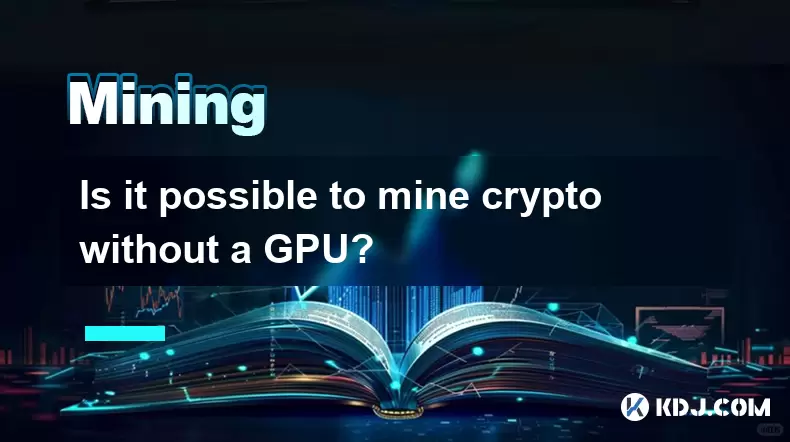
Understanding the Basics of Cryptocurrency Mining
Cryptocurrency mining refers to the process of validating transactions and adding them to the blockchain through computational power. Traditionally, GPU mining has been the most common method due to the high processing power required for solving complex cryptographic puzzles. However, the question arises: Is it possible to mine crypto without a GPU? The short answer is yes, but it comes with limitations and specific conditions.
Alternative Mining Methods Without a GPU
While GPU-based mining dominates the landscape, especially for popular cryptocurrencies like Ethereum, there are alternative methods that do not require a graphics card. These include:
- CPU mining, which utilizes the computer’s central processing unit.
- ASIC mining, which uses specialized hardware designed for specific algorithms.
- Cloud mining, where you rent hashing power from remote data centers.
- Mobile mining, which is experimental and not widely recommended.
Each method has its own advantages and drawbacks, and the feasibility of mining without a GPU largely depends on the cryptocurrency being mined and the available hardware.
CPU Mining: A Viable Option for Some Cryptocurrencies
CPU mining is one of the earliest forms of cryptocurrency mining and remains relevant for certain coins. Some cryptocurrencies are specifically designed to be CPU-friendly to promote decentralization and prevent the dominance of ASIC or GPU miners. Examples include:
- Monero (XMR): This privacy-focused coin uses the RandomX algorithm, which is optimized for CPUs and intentionally made inefficient for ASICs.
- Zcash (ZEC): While it can be mined with GPUs, some miners use CPUs for lightweight setups.
- Electroneum (ETN): Designed to be mined on mobile devices and CPUs.
To mine using a CPU, you need to:
- Download a compatible CPU mining software such as XMRig or cpuminer.
- Choose a mining pool or mine solo.
- Configure the software with your wallet address and server details.
- Launch the miner and monitor performance.
Cloud Mining: Mining Without Owning Hardware
Cloud mining allows users to participate in cryptocurrency mining without owning any hardware. Instead, they rent processing power from companies that operate large mining farms. This method eliminates the need for a GPU, electricity costs, and hardware maintenance.
Popular cloud mining platforms include:
- Genesis Mining
- Hashflare
- ECOS
The steps to begin cloud mining are:
- Register on a cloud mining service.
- Choose a mining contract based on hash rate and duration.
- Pay using cryptocurrency or fiat.
- Start mining and receive payouts periodically.
It’s important to research and choose reputable cloud mining providers to avoid scams. Some platforms may offer unrealistic returns or disappear after collecting funds.
ASIC Mining: Specialized Hardware Without GPUs
ASIC miners (Application-Specific Integrated Circuits) are designed for a specific hashing algorithm and are highly efficient for certain cryptocurrencies. While they are hardware devices, they are not GPUs and are often used in large-scale mining operations.
Some ASIC-friendly coins include:
- Bitcoin (BTC) – SHA-256 algorithm
- Litecoin (LTC) – Scrypt algorithm
- Bitcoin Cash (BCH) – SHA-256
If you already own an ASIC miner or plan to invest in one, you can mine without a GPU. The setup involves:
- Connecting the ASIC to a stable power source and internet connection.
- Configuring the miner with a mining pool or solo server.
- Monitoring performance through a web-based dashboard.
ASIC mining is not beginner-friendly and typically requires a significant upfront investment.
Mining on Mobile Devices: Experimental and Limited
Some apps claim to allow mobile mining, but the results are often negligible. Mobile devices lack the processing power to mine effectively, and mining can drain the battery and overheat the device. However, a few experimental projects like Pi Network allow users to mine through their phones by contributing to network security rather than solving cryptographic puzzles.
Mining through a mobile device involves:
- Downloading a mining app from an app store.
- Creating an account and verifying your phone number.
- Running the app periodically to accumulate rewards.
This method is more about user engagement than actual mining and should not be expected to generate meaningful income.
Frequently Asked Questions
Q: Can I mine Ethereum without a GPU?A: Ethereum mining currently relies heavily on GPUs due to the Ethash algorithm. However, if Ethereum fully transitions to a proof-of-stake model (as proposed with Ethereum 2.0), traditional mining may no longer be viable regardless of hardware type.
Q: Is CPU mining profitable in 2025?A: Profitability depends on the cryptocurrency, electricity costs, and hardware efficiency. Monero (XMR) remains one of the few profitable CPU mining options for individuals without access to GPUs.
Q: Can I mine crypto using only my laptop?A: Yes, if your laptop has a decent CPU and can run mining software. However, overheating and wear are concerns, especially during prolonged mining sessions.
Q: What are the risks of cloud mining?A: Risks include scams, contract fraud, and lack of control over hardware. Always choose well-established cloud mining platforms and read user reviews before investing.
Disclaimer:info@kdj.com
The information provided is not trading advice. kdj.com does not assume any responsibility for any investments made based on the information provided in this article. Cryptocurrencies are highly volatile and it is highly recommended that you invest with caution after thorough research!
If you believe that the content used on this website infringes your copyright, please contact us immediately (info@kdj.com) and we will delete it promptly.
- Bithumb's Bitcoin Bonanza: An Accidental Windfall Triggers Localized Market Dump
- 2026-02-07 10:10:01
- Big Apple Bites: While Ethereum Grapples, DeepSnitch AI Whispers of a 1000x Run
- 2026-02-07 06:30:02
- Token cat appointments furong tian to lead audit Amdst Strategic Reshffle
- 2026-02-07 06:40:01
- Coinbase Expands Roadmap, Navigating Cryptocurrency's Evolving Landscape
- 2026-02-07 10:05:02
- Bitcoin Price Surge Amidst Record Bitfinex Longs and Margin Buying Frenzy
- 2026-02-07 09:55:01
- Shiba Inu Price Eyes Historic Floor: Analysts Weigh In on SHIB's Current Price and Future Potential
- 2026-02-07 10:00:02
Related knowledge

How to mine Conflux on a standard gaming laptop?
Feb 07,2026 at 04:19am
Hardware Requirements for Conflux Mining1. Conflux uses a proof-of-work consensus mechanism called Tree-Graph, which is designed to be ASIC-resistant ...
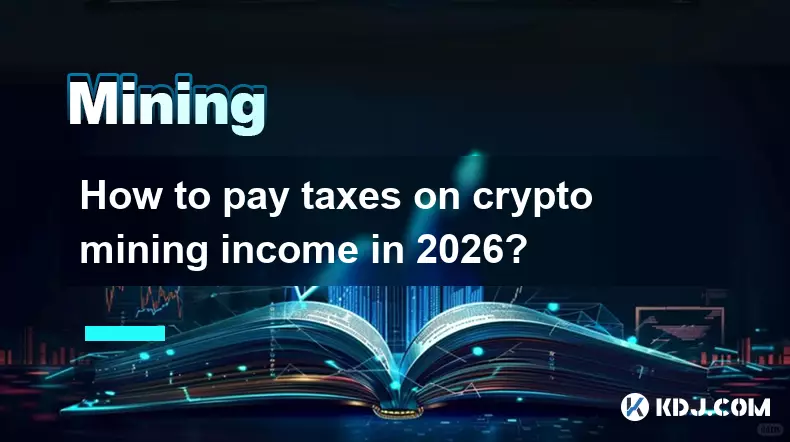
How to pay taxes on crypto mining income in 2026?
Feb 07,2026 at 01:20am
Tax Classification of Mining Rewards1. Cryptocurrency received as mining rewards is treated as ordinary income by most major tax jurisdictions includi...
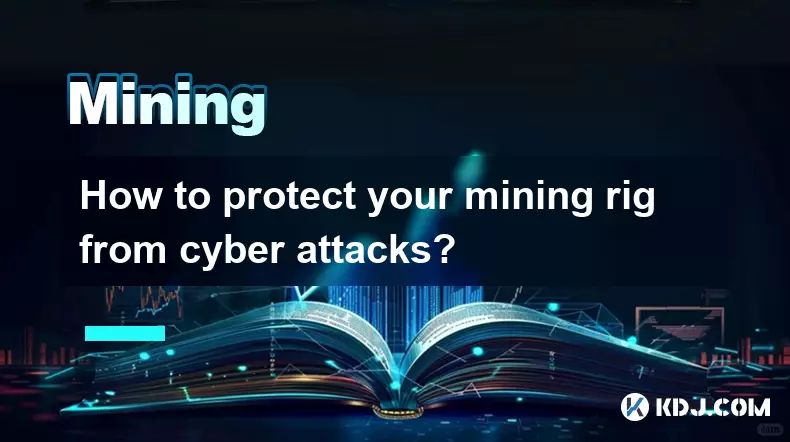
How to protect your mining rig from cyber attacks?
Feb 05,2026 at 09:40pm
Secure Firmware Updates1. Always verify the digital signature of firmware before installation to ensure authenticity and integrity. 2. Disable automat...
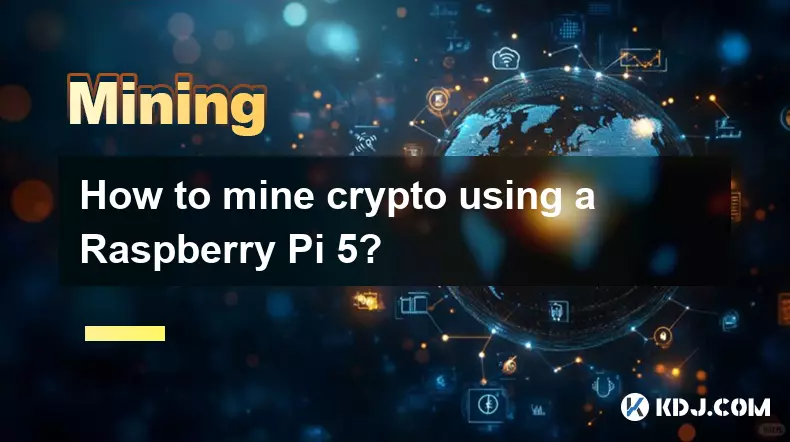
How to mine crypto using a Raspberry Pi 5?
Feb 07,2026 at 08:00am
Hardware Requirements for Raspberry Pi 5 Mining1. A Raspberry Pi 5 unit with at least 4GB of RAM is essential for stable operation under continuous co...
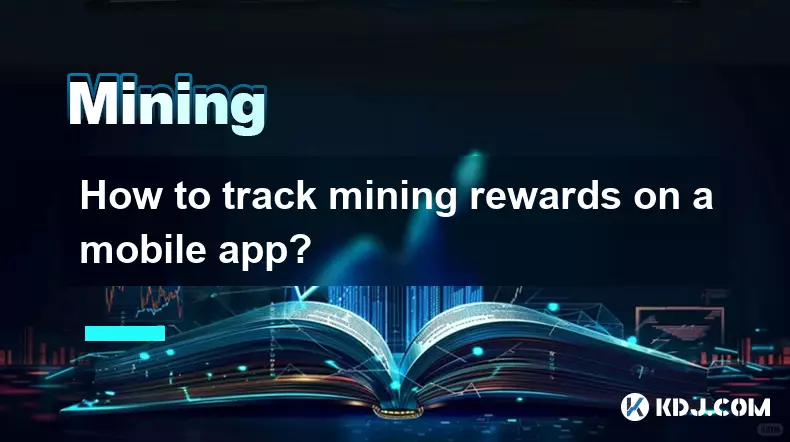
How to track mining rewards on a mobile app?
Feb 05,2026 at 09:19pm
Understanding Mining Reward Tracking Interfaces1. Mobile applications designed for cryptocurrency mining often integrate real-time dashboards that dis...

How to install liquid cooling on a mining rig?
Feb 06,2026 at 08:00am
Liquid Cooling System Components1. A complete liquid cooling setup for a mining rig includes water blocks designed specifically for GPUs, a reservoir ...

How to mine Conflux on a standard gaming laptop?
Feb 07,2026 at 04:19am
Hardware Requirements for Conflux Mining1. Conflux uses a proof-of-work consensus mechanism called Tree-Graph, which is designed to be ASIC-resistant ...

How to pay taxes on crypto mining income in 2026?
Feb 07,2026 at 01:20am
Tax Classification of Mining Rewards1. Cryptocurrency received as mining rewards is treated as ordinary income by most major tax jurisdictions includi...

How to protect your mining rig from cyber attacks?
Feb 05,2026 at 09:40pm
Secure Firmware Updates1. Always verify the digital signature of firmware before installation to ensure authenticity and integrity. 2. Disable automat...

How to mine crypto using a Raspberry Pi 5?
Feb 07,2026 at 08:00am
Hardware Requirements for Raspberry Pi 5 Mining1. A Raspberry Pi 5 unit with at least 4GB of RAM is essential for stable operation under continuous co...

How to track mining rewards on a mobile app?
Feb 05,2026 at 09:19pm
Understanding Mining Reward Tracking Interfaces1. Mobile applications designed for cryptocurrency mining often integrate real-time dashboards that dis...

How to install liquid cooling on a mining rig?
Feb 06,2026 at 08:00am
Liquid Cooling System Components1. A complete liquid cooling setup for a mining rig includes water blocks designed specifically for GPUs, a reservoir ...
See all articles










































































